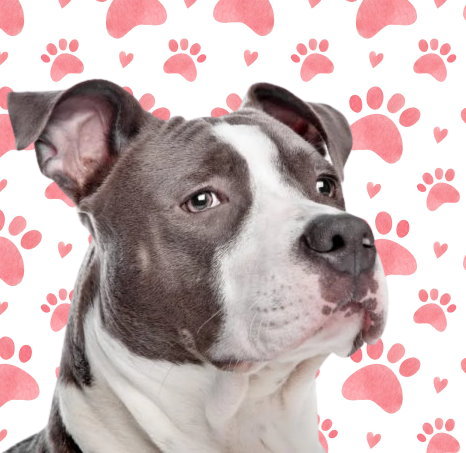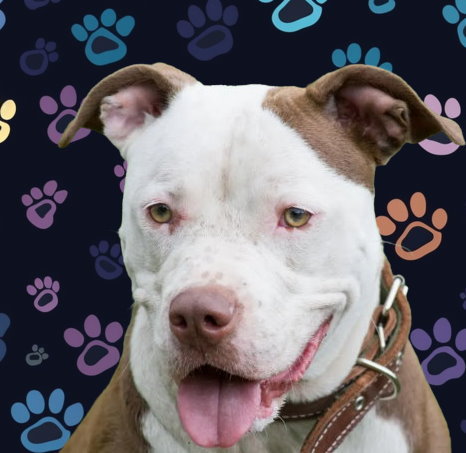Welcome to Dog Training Newbies !
Welcome to Dog Training Newbies !

Pit Bull Terriers, often misunderstood due to unfair stereotypes, are loving and loyal companions known for their affectionate nature. However, like any other breed, Pit Bulls can experience separation anxiety, a common behavioral issue that can manifest in various distressing ways. Understanding the causes behind separation anxiety in Pit Bull Terriers and implementing effective solutions is crucial in helping these intelligent and sensitive dogs cope with being alone.
CAUSES OF SEPARATION ANXIETY IN PIT BULL TERRIERS
Separation anxiety in Pit Bull Terriers can arise from multiple factors, including genetic predispositions, past experiences, changes in routine, lack of socialization, or a strong attachment to their human family members. These dogs form deep emotional bonds with their owners, making them more prone to anxiety when left alone for extended periods.
SOME COMMON CAUSES OF SEPARATION ANXIETY IN PIT BULL TERRIERS INCLUDE:
1. Strong Bonding: Pit Bulls are highly social dogs that form strong attachments to their human companions. When separated from their owners, they can experience feelings of distress and anxiety, leading to behavioral issues.
2. Past Trauma: Pit Bulls who have experienced abandonment, neglect, or abuse in the past may be more likely to develop separation anxiety. Traumatic experiences can leave a lasting impact on their emotional well-being, causing them to feel anxious when left alone.
3. Changes in Routine: Sudden changes in their daily schedule, such as a new work routine, moving to a new home, or the absence of a family member, can disrupt a Pit Bull's sense of security and trigger separation anxiety.
4. Lack of Socialization: Insufficient socialization during the critical developmental stages can contribute to separation anxiety in Pit Bull Terriers. Dogs that have not been exposed to a variety of people, environments, and experiences may struggle with coping when alone.
IDENTIFYING SIGNS OF SEPARATION ANXIETY
Recognizing the signs of separation anxiety in Pit Bull Terriers is essential for addressing the issue effectively and providing support to your furry friend. Common signs of separation anxiety in dogs include:
- Excessive barking or howling when left alone
- Destructive behavior, such as chewing furniture or doors
- Pacing or restlessness
- House soiling
- Attempts to escape confinement
- Excessive drooling or panting
- Self-injurious behaviors
If you notice these behaviors in your Pit Bull Terrier when you are preparing to leave or after you have left, it is crucial to take proactive steps to help them manage their anxiety.


SOLUTIONS FOR MANAGING SEPARATION ANXIETY
Managing separation anxiety in Pit Bull Terriers requires a combination of understanding, patience, and consistent training. Here are some effective solutions to help your Pit Bull cope with being alone:
1. Gradual Desensitization: Gradually accustom your Pit Bull to being alone by starting with short periods of separation and gradually increasing the duration. This helps build their confidence and teaches them that being alone is not a cause for alarm.
2. Create a Comfortable Environment: Provide your Pit Bull with a safe and comfortable space when you are away. Include familiar items such as toys, blankets, and clothing with your scent to help them feel secure in your absence.
3. Establish a Routine: Establish a consistent daily routine for your Pit Bull that includes regular feeding times, exercise, play, and rest. Predictability can help reduce their anxiety and provide a sense of stability.
4. Physical and Mental Stimulation: Ensure your Pit Bull receives plenty of physical exercise and mental stimulation to keep them engaged and alleviate stress. Interactive toys, puzzle feeders, and obedience training can help distract them and prevent boredom.
5. Training and Behavior Modification: Work with a professional dog trainer or behaviorist to implement positive reinforcement techniques and behavior modification strategies to address separation anxiety. Training exercises such as "stay" and "settle" can help your Pit Bull learn to relax when you are not around.
6. Seek Professional Support: If your Pit Bull's separation anxiety is severe or does not improve with training, consult with a veterinarian or a certified animal behaviorist for additional guidance and support. Medications or specialized behavior modification programs may be recommended in some cases.
PROVIDING COMPASSIONATE CARE FOR PIT BULL TERRIERS
In conclusion, separation anxiety in Pit Bull Terriers is a common issue that requires a compassionate and proactive approach to manage effectively. By understanding the causes of anxiety, recognizing the signs, and implementing tailored solutions, you can help your Pit Bull feel more secure and comfortable when left alone. With patience, consistency, and a supportive environment, you can empower your Pit Bull to overcome separation anxiety and thrive as a well-adjusted and happy companion. Remember that your love, understanding, and commitment are key to providing compassionate care for your beloved Pit Bull Terrier during times of separation anxiety.